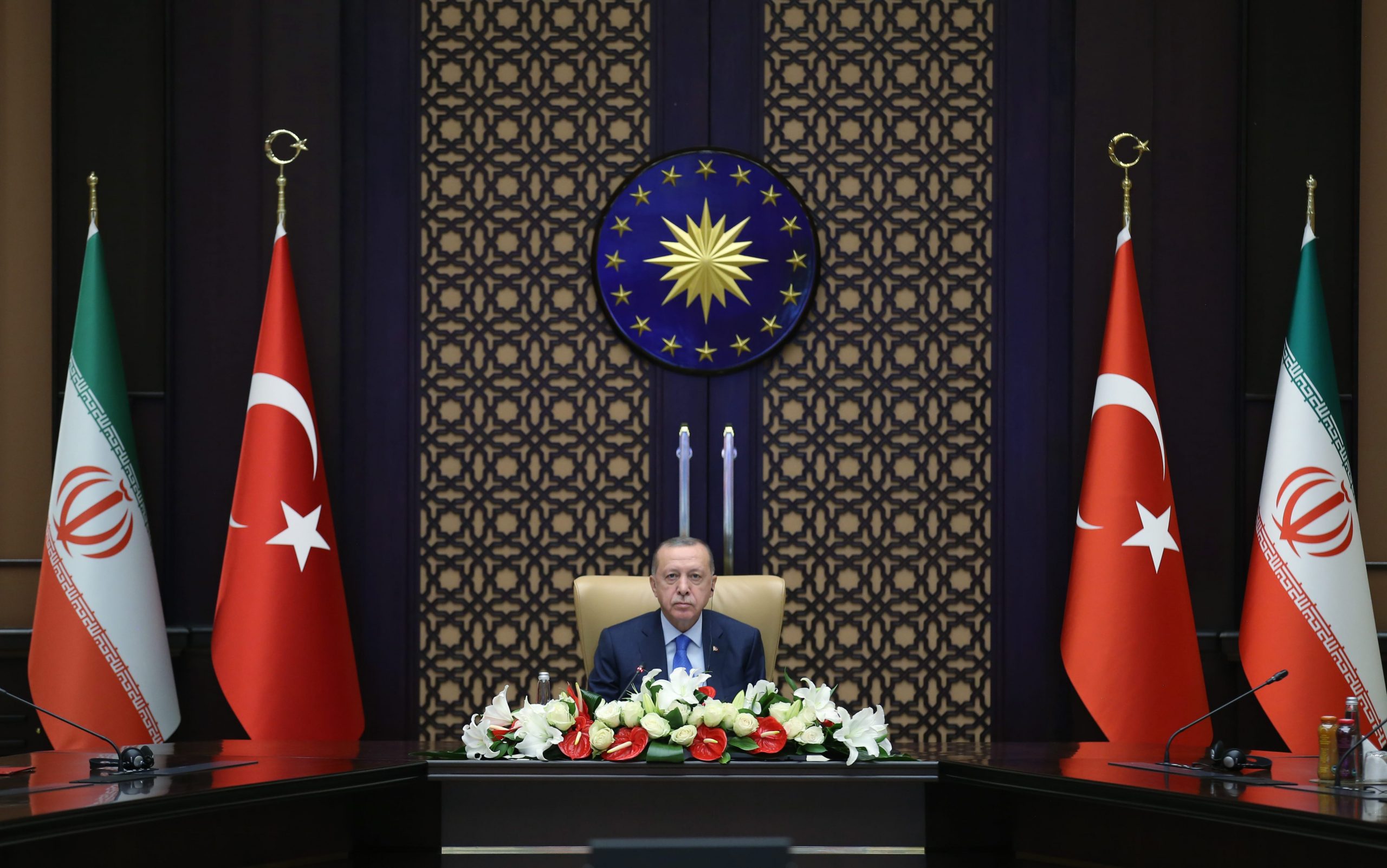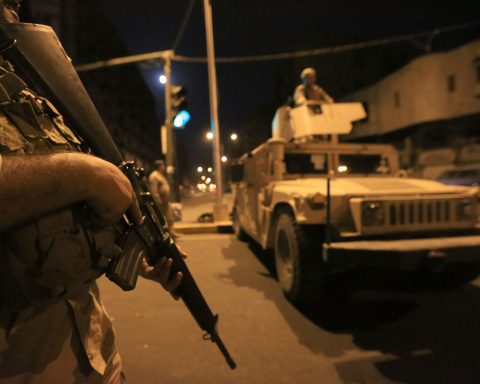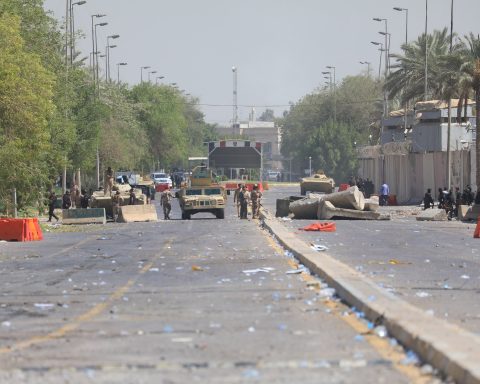The long-lived tacit row between Turkey and Iran has come to the fore again with a new occasion. Iranian Foreign Minister Hossein Amir-Abdollahian stated in a special session in parliament on May 10 that they are against the construction of dams on the Aras and Tigris rivers, and he accused Turkey of harming Iran and Iraq by building dam projects. The Turkish Ministry of Foreign Affairs, on the other hand, rejected the accusations and emphasized that Ankara is open to any rational and scientific cooperation on transboundary waters.
Although Ankara has had various disagreements with Iran, Iraq, and Syria regarding transboundary waters, Tehran’s last statements on the water issue seem to be related to its periodic geopolitical and political motivations. Iran and Turkey have recently been experiencing wars of influence in many areas, such as Iraq, Syria, and Karabakh. Particularly, being at cross-purposes in the Iraqi government formation process with Iran, Turkey is also at odds with Tehran in cross-border operations and relations with Iraqi Kurds. Considering the timing of the water issue, the bitter row between the two capitals seems to continue, and their relations have the potential to fray.
Sinjar: The triangulation point
The conflicts in Iraq are also at the center of the latest tension that broke out under the pretext of water. Iran and Iran-backed Iraqi militia groups are uncomfortable with the military operations launched by Turkey against the Kurdistan Workers’ Party (PKK), which is designated as a terrorist organization by the United States, the United Kingdom, and Turkey, in northern Iraq in recent years. The Claw-Lock operation launched by Ankara on April 18 also caused serious reactions. Particularly after Turkey’s last year’s operation in Gare, the accelerating rhetoric about the operation against Sinjar and the occasional drone attacks carried these reactions to a higher level. The expansion of Turkey’s military operations and bases near Iran’s sphere of influence exacerbates the discomfort.
Administratively a district of Mosul, Sinjar is considered a disputed territory between Iraq and the Kurdish Region Government of Iraq (KRG). Ankara and Tehran stand at odds regarding Sinjar, which came under the control of the PKK and Iran-backed militias after the ISIS invasion of the district in 2014. Sinjar has a significant location that provides a natural corridor between the Qandil Mountains, where the PKK is based in northern Iraq and the PKK’s Syria branch-controlled area in northern Syria, and also Sinjar creates a critical route for Iran’s access to Syria. However, arguing that it will never allow Sinjar to become the ‘second Qandil’, Turkey is uncomfortable with the tactical partnership between the Iran-backed militias and the PKK in the district. Indeed, it surfaced in the Pentagon’s January-March report that Iran-backed militias cooperated with the PKK against Turkey in Iraq and occasionally attacked Turkey’s bases in northern Iraq.
The efforts of the Iraqi forces to reduce the influence of the PKK-affiliated Sinjar Resistance Units (YBS) coincided with the Claw-Lock operations. After the operation started, the Iraqi Army deployed troops to Sinjar and experienced a fierce clash with the YBS. In fact, since the end of 2020, Iraq has been trying to increase its effectiveness in the district with the support of Turkey. While Iran-backed militias such as Kata’ib Hezbollah, Hezbollah al-Nujaba, and Asa’ib Ahl al-Haq are uncomfortable with the visibility of the Iraqi Army in this region, Turkey’s airstrikes targeting the PKK in Sinjar sharply react against the militias. After a Turkish soldier died in a militia attack on Turkey’s Bashiqa military base in April 2021, the militias augmented their verbal threats against Turkey with concrete actions. So much so that the militias have carried out more than ten attacks on Turkish bases in northern Iraq since the beginning of this year alone. For this reason, as long as Sinjar makes strategic sense for the parties, the region will continue to be one of the leading areas of tension between Iran and Turkey.
Ankara-Erbil relations on target
Turkey’s joint action with the KRG in PKK operations and negotiation efforts on natural gas trade may be discussed at the same level of Ankara-Tehran tension. Because the Claw-Lock operation was launched just a few days after the visit of KRG Prime Minister Masrour Barzani to Turkey, Massoud Barzani led-Kurdistan Democratic Party’s (KDP) quest to strengthen its influence in Sinjar drew backlash from Iran. In the October 10 elections in Iraq, all three deputies from Sinjar secured seats in parliament from the KDP list. Iran’s recent attacks on Erbil could be considered in this context.
A common perception exists that Turkish military operations aim not only to establish border security but also to strengthen Ankara-KDP political and energy cooperation. Turkish President Recep Tayyip Erdogan and KRG President Nechirvan Barzani met in Ankara on February 2. Two days after the meeting, Erdogan said Turkey sought a “win-win” deal with Iraq’s government to import gas and that Barzani promised to facilitate negotiations towards this end. Particularly after Russia’s invasion of Ukraine, and with the emergence of alternatives in global energy markets, discussions about exporting natural gas from the KRG to Turkey and Europe have increased.
However, the possible natural gas trade will have a negative effect on Iran. Both Turkey and Iraq export a significant portion of their gas from Iran, which is under international sanctions. Ankara’s diversification into natural gas will not only prevent Tehran from using the gas card politically, but will also have economic repercussions. As we may recall, Iran informed Turkey on January 20 that its gas deliveries would be halted for ten days. Shortly after, Erdogan brought up the gas issue in his meeting with Nechirvan Barzani. Furthermore, Iraq, which produces a significant part of its electricity from Iranian gas, is also constantly exposed to Iran’s gas card. In this respect, the fact that the KRG, which has good political, military, and economic relations with Turkey, plays a role in the natural gas trade, reinforces Iran’s anger. In this context, as long as the consent of Erbil continues regarding Turkey’s operations against the PKK and the natural gas issue, Iran seems to continue the tension with both Ankara and Erbil. While militia attacks against Turkish bases are expected to increase, it will not be surprising if Ankara-Erbil relations are targeted more.
Stalemate in government formation
A tacit conflict exists between Iran and Turkey in the Iraqi government formation process. Although the elections were held on October 10, 2021, the government could not be formed due to the disagreement between the political parties. Although Shiite leader Muqtada al-Sadr, Sunni leader Muhammad al-Halbousi, and Barzani’s KDP formed a coalition called ‘Saving the Homeland’, it has not been successful in forming a government yet. On the other hand, the Shiite Coordination Framework, under the leadership of Iran-backed forces, cannot also form a government. Fears about the exclusion of pro-Iranians from the new government are deepening uncertainty.
Turkey’s tacit support of the Sadr-led coalition is also one of the causes of tension for Iran. The fact that the KDP sided with Sadr against pro-Iranians and determined a parallel position with Turkey keeps Tehran’s anger alive. Although it is hard to predict how the government formation process will progress, the tension between Ankara and Tehran is likely to continue if a pro-Iranian or Sadr-led government is formed. It seems inevitable that Turkey’s maneuverability in Iraq will be adversely affected, particularly in a government scenario where Iran can be effective. Furthermore, it should be kept in mind that the KDP will also be punished in this scenario.
Although Iraq is the center of tension between the two capitals, Ankara and Tehran are also experiencing tensions in the regional geopolitical landscape. Taking completely different positions in the ongoing civil war in Syria is also a factor that constantly feeds the tension. The victory of Azerbaijan against Armenia in Karabakh in 2020, with the support of Turkey, also disturbed Iran. Furthermore, adopting a new approach to foreign policy centered on multilateral diplomacy and geopolitical pluralism, Turkey pursues normalized relations with Saudi Arabia, Armenia, Egypt, Greece, Israel, and the United Arab Emirates. Rising uncertainty, as Russia is preoccupied with Ukraine and the US has withdrawn from the region, blurs the projection of the actors. However, Iran seems to continue to press its rival in every field where it has different policies from Turkey. The most convenient ground for pressure would continue to be Iraq.














